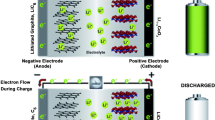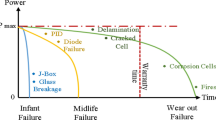Abstract
Energy management in Smart Home environments is undoubtedly one of the pressing issues in the Smart Grid research field. The aim typically consists in developing a suitable engineering solution able to maximally exploit the availability of renewable resources. Due to the presence of diverse cooperating devices, a complex model, involving the characterization of nonlinear phenomena, is indeed required on purpose. In this paper an Hybrid Soft Computing algorithmic framework, where genetic, neural networks and deterministic optimization algorithms jointly operate, is proposed to perform an efficient scheduling of the electrical tasks and of the activity of energy resources, by adequately handling the inherent nonlinear aspects of the energy management model. In particular, in order to address the end-user comfort constraints, the home thermal characterization is needed: this is accomplished by a nonlinear model relating the energy demand with the required temperature profile. A genetic algorithm, based on such model, is then used to optimally allocate the energy request to match the user thermal constraints, and therefore to allow the mixed-integer deterministic optimization algorithm to determine the remaining energy management actions. From this perspective, the ability to schedule the tasks and allocate the overall energy resources over a finite time horizon is assessed by means of diverse computer simulations in realistic conditions, allowing the authors to positively conclude about the effectiveness of the proposed approach. The degree of realism of the simulated scenario is confirmed by the usage of solar energy production forecasted data, obtained by means of a neural-network based algorithm which completes the framework.
























Similar content being viewed by others
Notes
GNU stands for GNU Is Not Unix.
“Il Meteo” website-http://www.ilmeteo.it.
PVGIS website—http://www.re.jrc.ec.europa.eu/pvgis.
Aeeg homesite: http://www.autorita.energia.it/it/inglese/index.htm.
ComeEd home site: http://il.thewattspot.com.
References
Arabali A, Ghofrani M, Etezadi-Amoli M, Fadali MS, Baghzouz Y (2013) Genetic-algorithm-based optimization approach for energy management. IEEE Trans Power Deliv 28(1):162–170
Boaro M, Fuselli D, Angelis FD, Liu D, Wei Q, Piazza F (2013) Adaptive dynamic programming algorithm for renewable energy scheduling and battery management. Cogn Comput 5(2):264–277
Bozchalui M, Sharma R (2012) Analysis of electric vehicles as mobile energy storage in commercial buildings: economic and environmental impacts. In: Power and energy society general meeting, 2012 IEEE, pp 1–8
Cecati C, Mokryani G, Piccolo A, Siano P (2010) An overview on the smart grid concept. In: IECON 2010—36th annual conference on IEEE industrial electronics society, pp 3322–3327
Ciabattoni L, Ippoliti G, Longhi S, Pirro M, Cavalletti M (2013) Solar irradiation forecasting for pv systems by fully tuned minimal rbf neural networks. In: Apolloni B, Bassis S, Esposito A, Morabito FC (eds) Neural nets and surroundings, ser. smart innovation, systems and technologies. Springer, Berlin, pp 289–300
Cui H, Dai W (2011) Multi-objective optimal allocation of distributed generation in smart grid. In: 2011 International conference on electrical and control engineering (ICECE), pp 713–717
Dantzig G (1998) Linear programming and extensions, 11th edn. Princeton University Press, New Jersey, US
De Angelis F, Boaro M, Fuselli D, Squartini S, Piazza F (2013) A comparison between different optimization techniques for energy scheduling in smart home environment. In: Neural Nets and Surroundings. Springer, Berlin, pp 311–320
De Angelis F, Boaro M, Fuselli D, Squartini S, Piazza F, Wei Q (2013) Optimal home energy management under dynamic electrical and thermal constraints. IEEE Trans Ind Inform 9(3):1518–1527
De Angelis F, Boaro M, Fuselli D, Squartini S, Piazza F, Wei Q, Wang D (2012) Optimal task and energy scheduling in dynamic residential scenarios. In: Proceedings of the 9th international conference on Advances in Neural Networks, vol Part I, ser. ISNN’12. Springer-Verlag, Berlin, pp 650–658
EN 12831:2003 (2003) Heating systems in buildings—method for calculation of the design heat load
EN ISO 13370:2007 (2007) Thermal performance of buildings—heat transfer via the ground—calculation methods ISO 13370:2007
EN ISO 13789:2007 (2007) Thermal performance of buildings—transmission and ventilation heat transfer coefficients—calculation method ISO 13789:2007
Fuselli D, De Angelis F, Boaro M, Squartini S, Wei Q, Liu D, Piazza F (2013) Action dependent heuristic dynamic programming for home energy resource scheduling. Int J Electr Power Energy Syst 48:148–160
Fuselli D, De Angelis F, Boaro M, Liu D, Wei Q, Squartini S, Piazza F (2012) Optimal battery management with adhdp in smart home environments. Adv Neural Netw-ISNN 2012 7368:355–364
Fux SF, Ashouri A, Benz MJ, Guzzella L (2012) EKF based self-adaptive thermal model for a passive house. Energy and Buildings. [Online]. Available: http://www.sciencedirect.com/science/article/pii/S0378778812003039
Gudi N, Wang L, Devabhaktuni V, Depuru S (2011) A demand-side management simulation platform incorporating optimal management of distributed renewable resources. In: Power systems conference and exposition (PSCE), 2011 IEEE/PES, pp 1–7
Hernandez L, Baladron C, Aguiar J, Carro B, Sanchez-Esguevillas A, Lloret J, Chinarro D, Gomez-Sanz J, Cook D (2013) A multi-agent system architecture for smart grid management and forecasting of energy demand in virtual power plants. Commun Mag IEEE 51(1):106–113
Ipakchi A, Albuyeh F (2009) Grid of the future. Power Energy Mag IEEE 7(2):52–62
Jang S-H, Park J-B, Roh JH, Son S-Y, Lee K (2012) Short-term resource scheduling for power systems with energy storage systems. In: Power and energy society general meeting, 2012 IEEE, pp 1–7
Kazanavičius E, Mikuckas A, Mikuckienė I, Č eponis J (2006) The heat balance model of residential house. Inf Technol Control 35(4):391–396
Khajavi P, Arani AB, Monsef H (2011) Identification of appropriate buses for implementation of smart grid in order to improve system efficiency. In: 2011 10th International conference on environment and electrical engineering (EEEIC), pp 1–4
Kirthiga M, Daniel S, Gurunathan S (2013) A methodology for transforming an existing distribution network into a sustainable autonomous micro-grid. IEEE Trans Sustainable Energy 4(1):31–41
Land AH, Doig AG (1960) An automatic method of solving discrete programming problems. Econometrica 28(3):497–520
Markvart T (2000) Solar electricity, 2nd edn. Wiley, Chichester, England
Mozina C (2011) Impact of green power generation on distribution systems in a smart grid. In: Power systems conference and exposition (PSCE), 2011 IEEE/PES, pp 1–8
Nagasaka K, Ando K, Xu Y, Takamori H, Wang J, Mitsuta A, Saito O, Go E (2012) A research on operation planning of multi smart micro grid. In: 2012 International conference on advanced mechatronic systems (ICAMechS), pp 351–356
Qela B, Mouftah H (2010) Simulation of a house heating system using C# - an energy conservation perspective. In: 2010 23rd Canadian conference on electrical and computer engineering (CCECE), pp 1–5
Severini M, Squartini S, Piazza F (2012) Energy-aware lazy scheduling algorithm for energy-harvesting sensor nodes. Neural Comput Appl 1–10. doi:10.1007/s00521-012-1088-x
Sivanandam S, Deepa S (2007) Introduction to genetic algorithms. Springer Publishing Company, Incorporated, Newyork
Soares J, Morais H, Sousa T, Vale Z, Faria P (2013) Day-ahead resource scheduling including demand response for electric vehicles. IEEE Trans Smart Grid 4(1):596–605
Squartini S, Boaro M, De Angelis F, Fuselli D, Piazza F (2013) Optimization algorithm for home energy resource scheduling in presence of data uncertainty. In: IEEE Proceeding of the ICICIP 2013
Squartini S, Fuselli D, Boaro M, De Angelis F, Piazza F (2013) Home energy resource scheduling algorithms and their dependency on the battery model. In: IEEE symposium series on computational intelligence
Tham C-K, Luo T (2013) Sensing-driven energy purchasing in smart grid cyber-physical system. IEEE Trans Syst, Man, Cybern: Syst (in press)
Vaziri M, Vadhva S, Oneal T, Johnson M (2011) Distributed generation issues, and standards. In: 2011 IEEE international conference on information reuse and integration (IRI), pp 439–443
You S, Marra F, Traeholt C (2012) Integration of fuel cell micro-chps on low voltage grid: a danish case study. In: Power and energy engineering conference (APPEEC), 2012 Asia-Pacific, pp 1–4
Zein Alabedin A, El-Saadany E, Salama M (2012) Generation scheduling in microgrids under uncertainties in power generation. In: Electrical power and energy conference (EPEC), 2012 IEEE, pp 133–138
Zhang D, Papageorgiou LG, Samsatli NJ, Shah N (2011) Optimal scheduling of smart homes energy consumption with microgrid. In: ENERGY 2011, the first international conference on smart grids, green communications and IT energy-aware technologies, pp 70–75
Author information
Authors and Affiliations
Corresponding author
Additional information
Communicated by C. Alippi, D. Zaho and D. Liu.
Rights and permissions
About this article
Cite this article
Severini, M., Squartini, S. & Piazza, F. Hybrid soft computing algorithmic framework for smart home energy management. Soft Comput 17, 1983–2005 (2013). https://doi.org/10.1007/s00500-013-1118-3
Published:
Issue Date:
DOI: https://doi.org/10.1007/s00500-013-1118-3




